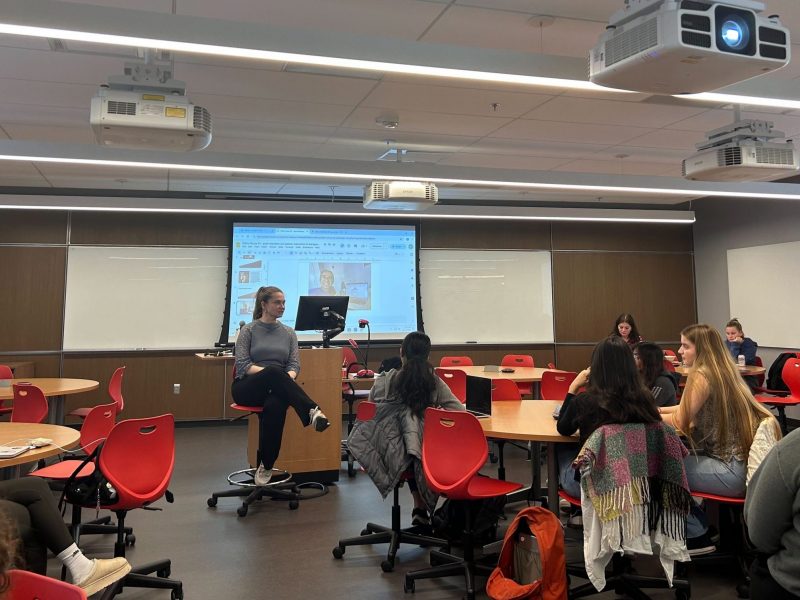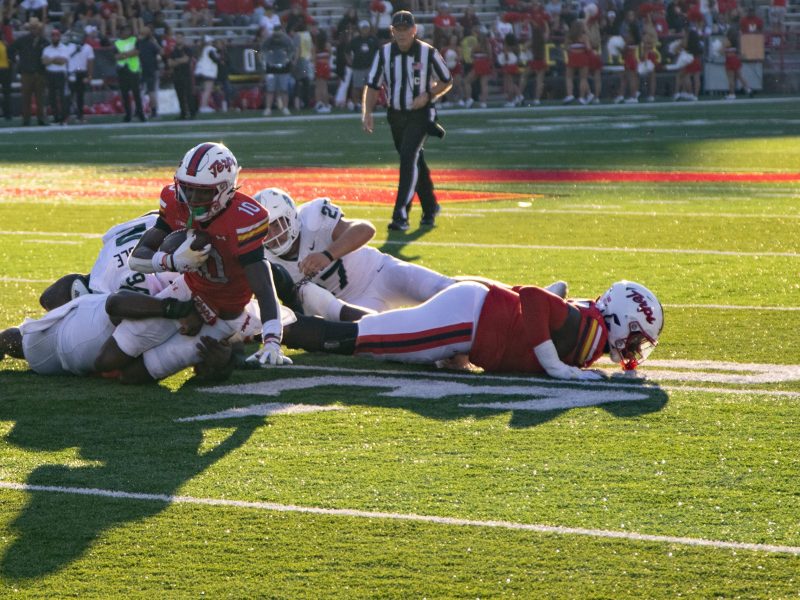
Senior government and politics and information systems major
Right now, seniors are experiencing the lethargic period of their lives known as “senioritis.” As many of us just have a little more than a semester left of our undergraduate careers, the likelihood that we actually focus in class is pretty slim.
But for some seniors, there can’t be senioritis. Why, you ask? Because of graduate school, that’s why.
For those interested in obtaining master’s degrees, law degrees, doctorates or masters of business administration, graduate programs will be interested in viewing a prospective graduate student’s entire undergraduate academic record, so to anyone going to graduate school, it looks like you’ll have to actually go to class next semester.
But for me, it’s worth it. For the past two years, I’ve known that at some point, I’d like to pursue a doctorate in political methodology (basically a blend of my two favorite subjects: statistics and politics). With the intention of becoming a professor, I hope to work at a research university.
When I tell friends about my career interests, they’re typically shocked. Usually they ask, “Why would you want to spend another five years in school?” or “Don’t you think it’ll be boring?” My mother’s favorite response is, “But you won’t be making as much as you will at a consulting firm!”
The reality is, money isn’t as huge of a factor to me as knowing I’m making some sort of difference (as cheesy as that might sound). Two things appeal to me with a career as an academic: research and mentorship.
While working on an undergraduate thesis is in no shape or form similar to conducting professional research for academic journals, I like that I’ve been able to get my foot in the door by preparing a research thesis on the partisan gender gap. With research, your work routine is never the same. You research topics from a unique angle or expand on previous research, so you get the opportunity to answer questions to puzzles that are still unanswered.
Throughout college, I’ve had to deal with many ups and downs, and I wouldn’t have made it through without some of my professors who acted as mentors and helped me overcome the tough barriers that got in the way of pursuing my education. In a sense, I view taking on a professorship as continuing to “pay it forward” by acting as a mentor in the future to a student who is also dealing with rough challenges.
Though the idea of becoming a professor might be boring or strange to some, I hope it ends up becoming a satisfying reality for me.
Caroline Carlson, opinion editor, is a senior government and politics and information systems major. She can be reached at ccarlsondbk@gmail.com.



